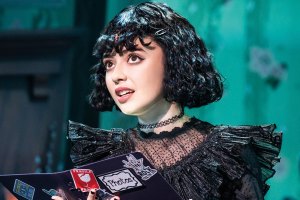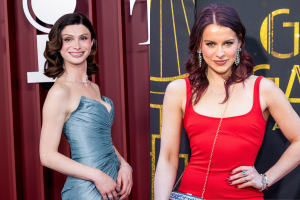Brief Encounter With … Andrew Quick
Andrew Quick, is a writer and director for Immitating The Dog, a theatre company with connections to painter Eric Fischl, as 10 years ago, a group of Lancaster University’s Theatre Studies students wished to build on the success of their production of Einmal ist Keinmal at the National Student Drama Festival at Scarborough by setting up a more permanent company. Searching for a name, they decided that Fischl’s paintings reflected the sort of the theatre they were creating: “Realistic, but with a surrealistic edge, scenes of suburban life, comfortable on the outside, but with a dark interior,” according to Quick who, as lecturer in Theatre Studies at Lancaster, directed Einmal ist Keinmal. The Fischl painting that they particularly admired was titled ‘Imitating the Dog’, and it is as imitating the dog that the company now has five major touring works to its credit, including the acclaimed Hotel Methuselah. Despite its Lancaster origins, imitating the dog was actually founded in Leeds. The company’s latest production is Tales from the bar of Lost Souls which arrives at the Dukes in Lancaster next month.
When did you start writing and why?
Imitating the dog began this project in the summer of 2009. I was very interested in some of the themes that Genet’s writing seems to focus on – people living on the margins of society, criminals, prostitutes and so forth. His writing on evil and when an act of evil can become transcendent, fascinated me. So, I ended up reading a lot of Genet and Wedekind and began to write a kind of long lyrical poem that is narrated by a dying man to his daughter. The writing is playful and, in turns, poetic – I see the piece as an entertainment, something that I hope the audience finds delightful. It’s not that there’s an absence of serious ideas in the work – more that it’s light and easy on the eye and ear. One of the things we focused on, from the start, was the kind of mythical lives that appeared to be lived both at sea and at the port – how harbours are places where the conventional rules of a society are suspended, where the tropes of ‘normal’ morality are seemingly abandoned.
Can you tell us a bit about the production?
Tales from the Bar of Lost Souls is funded by The British Council and is made in collaboration with The National Theatre of Greece and The Cyprus Theatre Organisation (THOK). It’s directed by myself with Pete Brooks. In fact, it is part of The British Council’s Creative Collaboration’s project and the remit is to work with performers across three different countries and organizations – in this case, Greece, Cyprus and the UK. In terms of the actual show, the audience view the action through three small windows – a bit like a graphic novel panel and we tell the story through a series of carefully set-up visual vignettes. Songs and interspersed conversation break up the visual flow and provide a way to tell the story. The narrative is a kind of fairy tale, or rather, piece of magical realism – I won’t say too much here except that there’s a twist to the story that is revealed at the end.
What inspired you to write it?
Recent imitating the dog productions such as Hotel Methuselah and Kellerman have been overtly cinematic and the dramaturgy of the performances have been driven by pre-recorded film/video footage that the performers have to keep in time to. Tales from the Bar of Lost Souls is an experiment that attempts to get away from this stylistic approach and yet still maintain what I hope is a beautifully thought through visual aesthetic. We still use projections, both front and back, but they are not the structuring device – in a way this is more actor centred, although there is little live spoken dialogue. In terms of inspiration I always think that you work from ideas that circulate in your own life – the problem of having and caring for children, of submitting to your desire and the constructive and, of course traumatic trajectory of love. This sounds all too romantic and the piece is quite romantic – with irony, of course.
When you working on the piece, did you imagine your ideas fused and with media?
A lot of our influences are pictorial and cinematic – and we are interested in literature – the poems of Pound certainly feature as one of the influences here. Media allows us to harness and re-work pictorial dynamics – to create highly stylized worlds within which our characters move around. We are in some ways very conventional with this media – we use it very theatrically. I mean like the Victorian theatre used certain concepts of scenic design, lighting, mirrors and so forth. Our designer Laura Hopkins is incredibly talented and she has come up with a wonderful conceptual scenographic world to work in – media is used to support this world completely, not to surpass or supplant it.
How important do you think this fusion is in this age of Avatar and i phones?
Well, in some ways it’s very important – people are very used to seeing things visually – through the medium of the screen. However, I think our work questions this reliance on technology as much as it appropriates it within the overall dramaturgy of the work. I think we attempt to tell stories in ways that are thought impossible in the theatre – and media helps us in this – but we are really interested in narrative, in theatre’s power to be magical, to being illusory. As I said above, this might make our work, at its heart, very conventional.
Tales From The Bar Of Lost Souls is a mix of genres. What do you hope that an audience will gain from this?
That they get lost and delight in the story.
What’s in it for the audience – from a disenchanted theatre-goer to a newcomer to the stalls?
A chance to think and experience theatre as having something magical about it.
As a writer, what was the last great thing you read?
Cormac McCarthy’s Blood Meridian, or the Evening Redness in the West – it’s a truly extraordinary book with passages of writing I can’t shrug off.
And the last piece of theatre you enjoyed?
It’s very rare that I don’t find something to enjoy in the theatre – I am always amazed by it’s capacity to surprise. The last thing I saw was Nick Green’s Trilogy and I found parts of this work very moving.
What are your plans following this tour?
I see us coming back to this piece – it’s a short tour and, as I said above, a kind of experiment for us. We are about to work on another large-scale work, which will see us moving forward from some of the themes we explored in Kellerman. We are interested in stories that might emerge out of the debris of a war striven Europe – we have been looking at films like The Third Man and Philip Kerr’s Bernie Gunther novels – but these are early days. We have a lot of work to do on Tales from the Bar of Lost Souls before fully immersing ourselves in the next show.
Andrew Quick was speaking to Glenn Meads.
Tales From The Bar Of Lost Souls is at The Dukes Theatre Lancaster from 18 – 19 March.












